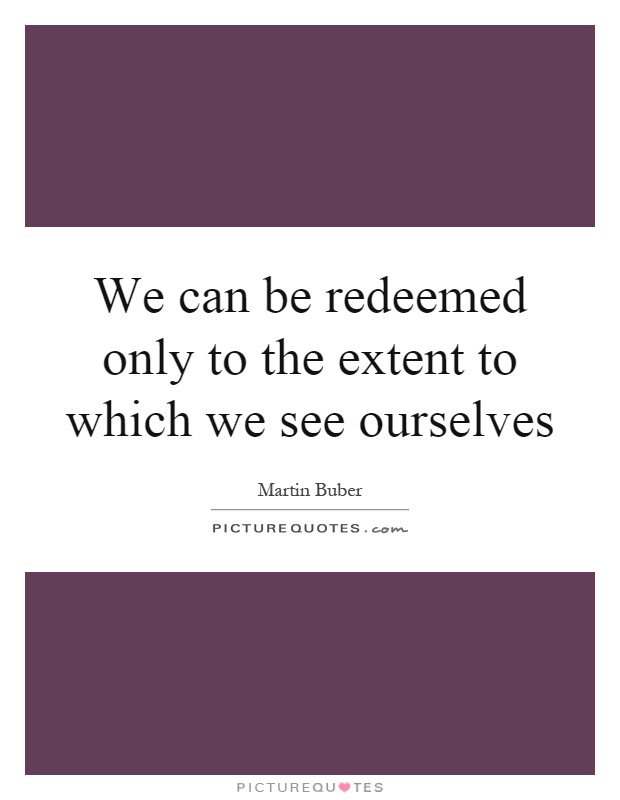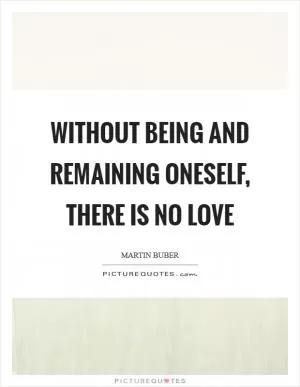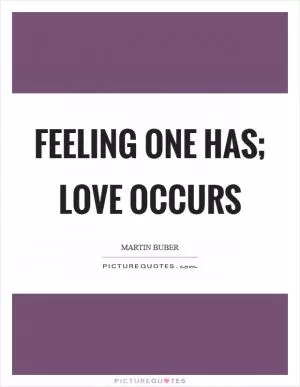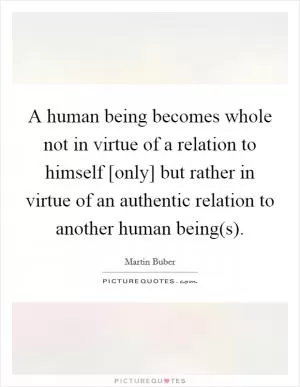We can be redeemed only to the extent to which we see ourselves

We can be redeemed only to the extent to which we see ourselves
Martin Buber, a prominent Jewish philosopher and theologian, believed in the importance of human relationships and the concept of redemption through self-awareness and self-reflection. In his work, Buber emphasized the idea that we can only be redeemed to the extent to which we see ourselves. This notion suggests that true redemption can only be achieved when we have a deep understanding of ourselves and our place in the world.Buber's philosophy is rooted in the belief that human beings are relational creatures, and that our relationships with others are essential to our sense of self and our ability to find meaning and purpose in life. According to Buber, our interactions with others can either hinder or facilitate our personal growth and development. By engaging in authentic and meaningful relationships with others, we can come to a deeper understanding of ourselves and our place in the world.
In order to be redeemed, Buber believed that we must first acknowledge and accept our own flaws, weaknesses, and limitations. This requires a willingness to engage in self-examination and introspection, and to confront the parts of ourselves that we may not be proud of. By facing our own shortcomings and imperfections, we can begin to work towards self-improvement and personal growth.
Buber also emphasized the importance of recognizing the inherent worth and dignity of every individual. By treating others with respect, empathy, and compassion, we can cultivate a sense of interconnectedness and unity with the world around us. This sense of connection can lead to a greater sense of fulfillment and purpose in life, and can ultimately help us to achieve a sense of redemption.












 Friendship Quotes
Friendship Quotes Love Quotes
Love Quotes Life Quotes
Life Quotes Funny Quotes
Funny Quotes Motivational Quotes
Motivational Quotes Inspirational Quotes
Inspirational Quotes